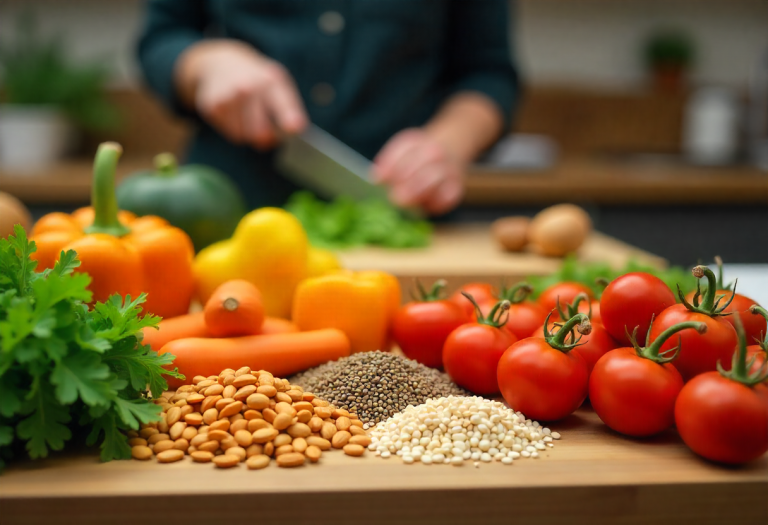Eating healthy doesn’t have to be complicated or expensive. Clean eating focuses on consuming whole, minimally processed foods while avoiding artificial additives, excessive sugar, and unhealthy fats. Adopting clean eating habits can improve your energy levels, support weight management, and promote overall physical and mental wellness. In this article, we’ll explore seven practical tips that make clean eating simple, sustainable, and effective for everyone.
What Is Clean Eating?
Clean eating is more than just a diet; it’s a lifestyle approach to food. It emphasizes:
Whole foods like fruits, vegetables, whole grains, nuts, and seeds
Lean protein sources including legumes, tofu, and fish
Healthy fats from sources like olive oil, avocado, and nuts
Minimal processed foods, artificial ingredients, and refined sugars
The goal is to nourish your body with nutrient-dense foods while maintaining balance and variety in your meals.
Tip 1: Prioritize Whole, Unprocessed Foods
The foundation of clean eating is whole, unprocessed foods. These foods retain their natural nutrients, fiber, and antioxidants, which are essential for good health. Focus on:
Fresh fruits and vegetables
Whole grains like quinoa, oats, and brown rice
Legumes such as lentils, chickpeas, and beans
Lean proteins like eggs, tofu, and fish
When shopping, aim for items that are as close to their natural state as possible. The less processed the food, the better for your body.
Tip 2: Plan Your Meals Ahead
Meal planning helps you make healthier choices and reduces the temptation to grab processed foods. Spend a few minutes each week planning your meals and snacks, ensuring they include a balance of protein, healthy fats, and complex carbohydrates. Preparing meals in advance also saves time, reduces stress, and helps avoid last-minute unhealthy choices.
Tip 3: Read Food Labels Carefully
Processed foods often hide unhealthy ingredients behind fancy labels. Reading food labels can help you avoid excess sugar, sodium, trans fats, and artificial additives. Look for products with minimal ingredients and those that you can recognize. For example, a healthy pasta sauce might contain tomatoes, olive oil, garlic, and herbs, whereas a heavily processed one might list a dozen unfamiliar chemicals.
Tip 4: Incorporate More Plant-Based Meals
Plant-based foods are rich in fiber, vitamins, minerals, and antioxidants, which support digestion, heart health, and weight management. Try incorporating more plant-based meals into your week:
Vegetable stir-fries with tofu
Lentil or chickpea salads
Smoothies packed with leafy greens, fruits, and seeds
Even if you are not fully vegetarian, eating more plant-based meals can reduce inflammation and improve energy levels.
Tip 5: Hydrate Wisely
Drinking enough water is a key component of clean eating. Staying hydrated aids digestion, boosts metabolism, and improves mental clarity. Avoid sugary drinks like sodas and fruit juices loaded with added sugars. Instead, try:
Water with a splash of lemon or cucumber
Herbal teas
Coconut water for natural electrolytes
Aim for at least 8 glasses of water a day, adjusting based on activity level and climate.
Tip 6: Minimize Added Sugars and Processed Snacks
Excess sugar and processed snacks can lead to energy crashes, weight gain, and long-term health issues like insulin resistance. Swap sugary treats with healthier alternatives:
Fresh fruits instead of candy
Homemade granola bars instead of packaged ones
Dark chocolate (70% or higher) instead of milk chocolate
By making small swaps, you’ll gradually reduce sugar cravings and stabilize your energy levels throughout the day.
Tip 7: Practice Mindful Eating
Clean eating is not just about what you eat but also how you eat. Mindful eating involves:
Paying attention to hunger and fullness cues
Eating slowly and savoring each bite
Avoiding distractions like TV or phones during meals
Mindful eating helps you develop a healthier relationship with food, reduces overeating, and encourages better digestion.
Benefits of Clean Eating
Adopting clean eating habits has numerous benefits:
Improved Energy Levels: Whole, nutrient-dense foods fuel your body efficiently.
Weight Management: Balanced meals help maintain a healthy weight without strict dieting.
Better Mental Clarity: Foods rich in antioxidants and omega-3s improve brain function and mood.
Reduced Risk of Chronic Disease: Lower intake of processed foods can reduce inflammation, heart disease risk, and diabetes.
Enhanced Digestion: Fiber-rich foods support a healthy gut microbiome.
Practical Tips to Get Started
Start gradually: Replace one processed meal with a whole-food alternative.
Cook at home: This gives you full control over ingredients and portion sizes.
Keep healthy snacks on hand: Nuts, fruits, and cut vegetables are convenient options.
Focus on variety: Rotate different fruits, vegetables, and proteins to avoid nutrient deficiencies.
Be consistent: Small daily habits build long-term results.
Final Thoughts
Clean eating doesn’t require perfection. It’s about making consistent, intentional choices to nourish your body. By prioritizing whole foods, staying hydrated, minimizing sugar, and practicing mindful eating, you can transform your health and energy levels without strict dieting. Remember, the key is sustainability — start small, build habits, and gradually enjoy a lifestyle that supports both your body and mind.
